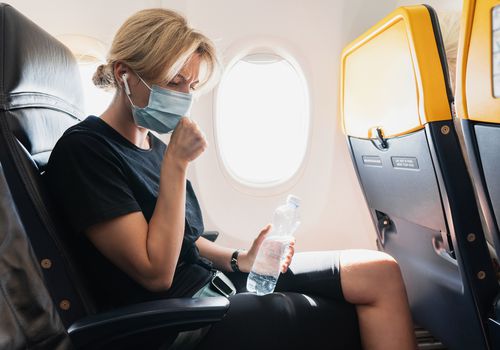COVID has had a permanent impact on the way we work, but it’s interesting to see how it has affected our lifestyles, our social life, and the way we move about.
Travel has been impacted significantly, and this article takes a closer look at how COVID has changed the way we travel.
International travel
International air-travel was one of the hardest hit industries when COVID hit. For many Muslims, as mentioned by iVisa, this has meant canceling or postponing plans to perform the Umrah, a pilgrimage to Mecca, in the hope that soon, US citizens will get the visa and perform the Umrah. There was a detrimental drop in international passenger demand and future bookings have plummeted.
Pre-pandemic saw many low-cost airlines making travel more affordable, spontaneous, and accessible for many.
However, the increased amount of paperwork and admin, such as vaccination status and testing has increased administrative costs for many airlines.
This may push the price of regular air travel up, making international travel less accessible than before COVID.
Money aside, many UK citizens are understandably worried about travelling with the health concerns of COVID and what that also means post-Brexit.
Importantly, having a global health insurance card (GHIC) allows all UK citizens to access state-funded health services provided by the European Union countries.
You can do the GHIC application process online, so remember to make this part of your travel preparation.
With international travel limited, we’ve seen an increase in in-country tourism. Staycations have become a more popular option for many seeking a trip away closer to home.
This has helped boost the economy for many wealthier countries. However, there are many countries whose economy relies solely on international tourism.
Shifts in our day-to-day driving habits
During the first lockdown, we saw a significant drop in the number of cars on the road, which meant less congestion overall. Even the busiest times of day, like commuting hours, saw free-flowing traffic.
However, as we navigate the pandemic and restrictions fluctuate, we are seeing more people return to the roads for essential journeys.
With there still being a lot of social and health anxiety around group settings and public interaction, many people are relying on their own transport, rather than public transport.
What are the consequences of these habit changes?
With an increase of reliance on individual cars rather than public transport, we may see an impact on the environment, public transport sector, and personal wellbeing.
We got a glimpse of how the environment could benefit from less cars on the road during very strict lockdowns, but as more people rely on their own transport over public transport now, we may see an increase in car emissions. Consequently, there are concerns for the air quality in busier areas.
The decrease in demand for public transport has impacted the amount of money invested into this industry and the revenue its producing. Consequently, a reduction in services has put many jobs at risk.
Increasing the use of our personal cars may lead to more stress associated car journeys, especially our journeys to and from work.
In conclusion, there are still many concerns and questions regarding how COVID has changed the way we travel and how we can further recover from the unprecedented times we’ve lived through.
It has affected all sorts from demand, accessibility, price, convenience and had its impact on the environment and wellbeing too.
Read also: Matters all and sundry should know earlier than traveling Saudi Arabia
